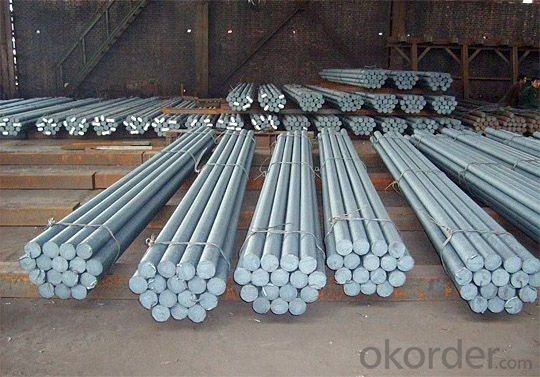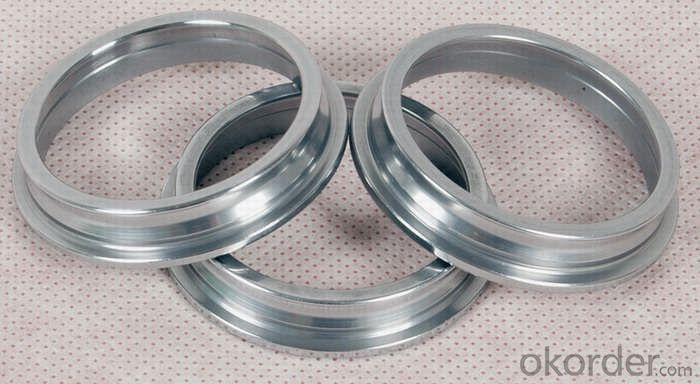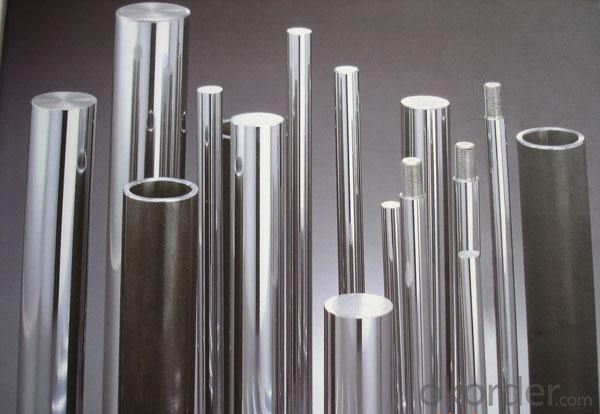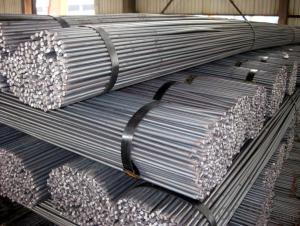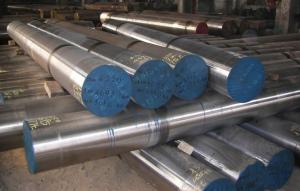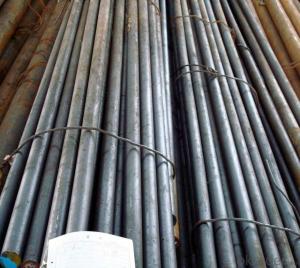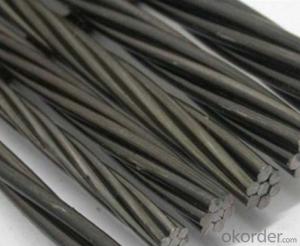Bearing Steel bar for 12_180
- Loading Port:
- China Main Port
- Payment Terms:
- TT or LC
- Min Order Qty:
- -
- Supply Capability:
- -
OKorder Service Pledge
OKorder Financial Service
You Might Also Like
Product Description:
OKorder is offering Bearing Steel bar for 12_180 at great prices with worldwide shipping. Our supplier is a world-class manufacturer of steel, with our products utilized the world over. OKorder annually supplies products to European, North American and Asian markets. We provide quotations within 24 hours of receiving an inquiry and guarantee competitive prices.
Product Applications:
Bearing Steel bar for 12_180 are ideal for structural applications and are widely used in the construction of buildings and bridges, and the manufacturing, petrochemical, and transportation industries.
Product Advantages:
OKorder's Bearing Steel bar for 12_180 are durable, strong, and resist corrosion.
Main Product Features:
· Premium quality
· Prompt delivery & seaworthy packing (30 days after receiving deposit)
· Corrosion resistance
· Can be recycled and reused
· Mill test certification
· Professional Service
· Competitive pricing
Product Specifications:
Manufacture: Hot rolled
Grade: Q195 – 235
Certificates: ISO, SGS, BV, CIQ
Length: 6m – 12m, as per customer request
Packaging: Export packing, nude packing, bundled
FAQ:
Q1: Why buy Materials & Equipment from OKorder.com?
A1: All products offered byOKorder.com are carefully selected from China's most reliable manufacturing enterprises. Through its ISO certifications, OKorder.com adheres to the highest standards and a commitment to supply chain safety and customer satisfaction.
Q2: How do we guarantee the quality of our products?
A2: We have established an advanced quality management system which conducts strict quality tests at every step, from raw materials to the final product. At the same time, we provide extensive follow-up service assurances as required.
Q3: How soon can we receive the product after purchase?
A3: Within three days of placing an order, we will begin production. The specific shipping date is dependent upon international and government factors, but is typically 7 to 10 workdays.
Q4: What makes stainless steel stainless?
A4: Stainless steel must contain at least 10.5 % chromium. It is this element that reacts with the oxygen in the air to form a complex chrome-oxide surface layer that is invisible but strong enough to prevent further oxygen from "staining" (rusting) the surface. Higher levels of chromium and the addition of other alloying elements such as nickel and molybdenum enhance this surface layer and improve the corrosion resistance of the stainless material.
Q5: Can stainless steel rust?
A5: Stainless does not "rust" as you think of regular steel rusting with a red oxide on the surface that flakes off. If you see red rust it is probably due to some iron particles that have contaminated the surface of the stainless steel and it is these iron particles that are rusting. Look at the source of the rusting and see if you can remove it from the surface.
Images:
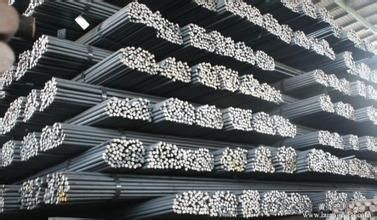
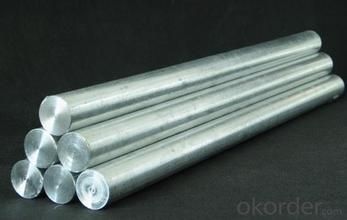
- Q: What is a steel round bar?
- A steel round bar is a solid cylindrical rod made of steel that has a circular cross-section. It is commonly used in construction, manufacturing, and machining applications due to its strength, durability, and versatility.
- Q: Can steel round bars be used in the production of forgings?
- Yes, steel round bars can be used in the production of forgings. Steel round bars are commonly used as raw materials for forging processes. The round bars are heated to a specific temperature and then shaped using various forging techniques such as hammering, pressing, or rolling. The heat and pressure applied during the forging process help to enhance the mechanical properties of the steel, making it stronger and more durable. Steel round bars are ideal for producing forgings as they provide a consistent and uniform shape, ensuring the final product meets the required specifications. Additionally, steel round bars offer versatility in terms of size, grade, and composition, allowing for a wide range of applications in various industries such as automotive, aerospace, and construction.
- Q: Can steel round bars be used in the defense industry?
- Yes, steel round bars can be used in the defense industry. They are commonly utilized in various applications such as building military vehicles, manufacturing weapons, and constructing defense structures due to their strength, durability, and versatility.
- Q: What are the options for joining steel round bars?
- There are several options for joining steel round bars, including welding, using mechanical fasteners such as bolts or screws, and adhesive bonding. The choice of method depends on factors such as the specific application, desired strength and durability, and available resources.
- Q: What are the different testing methods used for steel round bars?
- Steel round bars undergo various testing methods to guarantee their quality and suitability for different applications. These methods encompass: 1. Visual Inspection: In this preliminary step, the bars are visually assessed for any discernible defects, such as cracks, surface irregularities, or incorrect dimensions. 2. Dimensional checks: To verify their diameter, length, and straightness, steel round bars are subject to dimensional scrutiny. Accurate measurements are imperative to meet specified requirements. 3. Ultrasonic Testing: Internal defects like cracks, voids, or inclusions are detected by passing ultrasonic waves through the round bars. This method identifies potential weaknesses that could compromise the bars' structural integrity. 4. Magnetic Particle Inspection: By utilizing a magnetic field and magnetic particles, this method identifies surface and near-surface defects like cracks, seams, or laps. It is especially advantageous for ferromagnetic materials like steel. 5. Dye Penetrant Inspection: This technique involves applying a colored dye to the round bars' surface and subsequently wiping it off. The dye seeps into any surface cracks or defects, making them visible under ultraviolet light. 6. Hardness Testing: To gauge the hardness of steel round bars, hardness testing is conducted using methods like Rockwell or Brinell scales. It assists in determining the material's ability to withstand external forces and ensures compliance with required hardness specifications. 7. Tensile Testing: This test measures the maximum load a steel round bar can bear before fracturing, providing insight into the material's strength and ductility. 8. Chemical Analysis: Chemical analysis is performed to ascertain the composition of the steel round bars, including the presence of elements like carbon, manganese, sulfur, phosphorus, and others. It guarantees adherence to the required chemical composition standards. These testing methods are vital in ensuring that steel round bars meet industry standards and customer requirements in terms of quality, reliability, and compliance. Employing a combination of these tests is essential to ensure overall quality and performance in various applications.
- Q: Do steel round bars have a maximum load capacity?
- Yes, steel round bars have a maximum load capacity. The maximum load capacity of a steel round bar is determined by various factors such as the diameter and length of the bar, the type and grade of steel used, and the specific application or industry standards it is being used in. The load capacity is usually determined through testing and analysis, taking into consideration factors like yield strength, ultimate tensile strength, and the ability of the bar to withstand bending or deformation under load. It is important to consult engineering specifications and guidelines to ensure that the maximum load capacity of a steel round bar is not exceeded in order to maintain safety and structural integrity.
- Q: Can steel round bars be used for making tie rods?
- Yes, steel round bars can be used for making tie rods.
- Q: What are the different machining processes used for steel round bars?
- There are several machining processes commonly used for steel round bars, depending on the desired outcome and specifications of the project. Some of the most common machining processes for steel round bars include: 1. Turning: Turning is a machining process where the round bar is rotated and a cutting tool is used to remove material, creating a desired shape or size. This process is commonly used to reduce the diameter of the round bar or to create precision cylindrical shapes. 2. Drilling: Drilling involves creating holes in the steel round bar using a rotating cutting tool called a drill bit. This process is often used to create holes for bolts, screws, or other fasteners. 3. Milling: Milling is a machining process that involves removing material from the surface of the steel round bar using a rotating cutting tool with multiple teeth. This process is used to create flat surfaces, grooves, or complex shapes on the round bar. 4. Grinding: Grinding is a process where abrasive particles are used to remove material from the steel round bar, creating a smooth surface finish or achieving specific tolerances. It is commonly used to refine the surface finish or to remove any imperfections. 5. Thread rolling: Thread rolling is a process used to create external threads on the steel round bar. A hardened steel die is pressed against the rotating round bar, causing the material to flow and form the desired threads. 6. Cold drawing: Cold drawing is a process where the steel round bar is pulled through a die to reduce its diameter and improve its surface finish. This process is used to create precise dimensions and improve the mechanical properties of the steel round bar. 7. Heat treatment: Heat treatment is not a machining process itself, but it is often used in conjunction with machining to enhance the properties of the steel round bar. Heat treatment processes such as annealing, quenching, and tempering can be used to improve hardness, strength, and toughness. These are just a few of the many machining processes that can be used for steel round bars. The specific process chosen will depend on factors such as the desired shape, size, surface finish, and mechanical properties required for the application.
- Q: Can steel round bars be used for making gears or sprockets?
- Yes, steel round bars can be used for making gears or sprockets. Steel is a commonly used material in gear and sprocket manufacturing due to its high strength, durability, and resistance to wear and tear. Steel round bars can be machined or forged into the desired shape and then cut, drilled, or milled to create the necessary teeth or grooves required for gear or sprocket functionality. The specific type of steel and its heat treatment can be chosen based on the application requirements, such as load capacity, speed, and environmental conditions. Overall, steel round bars are a versatile and reliable choice for manufacturing gears and sprockets.
- Q: How do you check the quality of a steel round bar?
- To check the quality of a steel round bar, several methods can be employed. Firstly, visual inspection is crucial, where one should look for any surface defects, such as cracks, pits, or unevenness. Next, measurements of diameter, length, and straightness should be taken using appropriate tools. Additionally, conducting a hardness test using a hardness tester can determine the bar's hardness, ensuring it meets the required specifications. Other quality checks may involve verifying the chemical composition and performing non-destructive tests like ultrasonic or magnetic particle inspections to identify any internal flaws. Ultimately, a comprehensive assessment combining these various methods will help ascertain the overall quality of the steel round bar.
Send your message to us
Bearing Steel bar for 12_180
- Loading Port:
- China Main Port
- Payment Terms:
- TT or LC
- Min Order Qty:
- -
- Supply Capability:
- -
OKorder Service Pledge
OKorder Financial Service
Similar products
Hot products
Hot Searches
Related keywords



